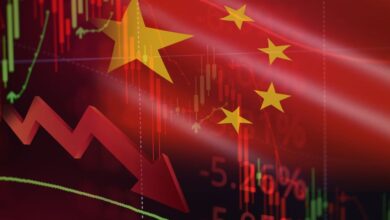A Tale Of Expansion, Government Support And Financial Health

In the dynamic world of technology, the semiconductor sector plays a pivotal role, driving innovation and powering countless devices. At the heart of this industry’s evolution is Intel, a titan in semiconductor manufacturing, known for its significant contributions to computing and technology. The corporation’s recent financial outcomes have painted a picture of the challenges inherent in scaling operations, especially against the backdrop of an ambitious expansion strategy. A downturn in revenue from its manufacturing arms and a notable increase in losses, the enterprise remains committed to transforming its operational framework. This transformation is aimed at meeting the surging demand for outsourced chip production, a move that underscores the complexities and financial stakes involved in scaling up in today’s competitive landscape.
Meanwhile, the global semiconductor arena is experiencing a wave of government interventions, underscoring the strategic importance of this industry. A notable example is Japan’s decision to extend substantial subsidies to the chip venture Rapidus, a clear signal of the country’s dedication to reclaiming its stature in semiconductor manufacturing. This initiative is part of a larger strategy to position itself against industry behemoths such as Taiwan Semiconductor Manufacturing Co. (NYSE:TSM) and Samsung Electronics Co., highlighting the critical role of semiconductors across various sectors, from automotive to consumer electronics. The backing from the Japanese government exemplifies the lengths to which nations are willing to go to bolster their domestic manufacturing capabilities, reflecting the broader geopolitical and economic stakes tied to the semiconductor industry.
On the financial front, the allure of the semiconductor sector extends beyond its technological milestones, drawing attention to its economic virtues. Giants in the field, including TSMC and Samsung Electronics, have garnered acclaim for their financial resilience and dedication to enhancing shareholder value through dividends. This focus on financial returns is particularly attractive in today’s market, where investors are on the lookout for businesses with solid financial foundations and promising dividend prospects. The emphasis on rewarding shareholders underscores a maturation phase within certain segments of the semiconductor industry, offering a stable narrative amidst the sector’s traditional volatility.
However, navigating the semiconductor landscape is fraught with complexities. Firms like Intel are spearheading unprecedented expansions in the US and Europe, capitalizing on government incentives to amplify their footprint. These ventures are emblematic of the strategic pivots organizations are willing to undertake to cement their market dominance. Moreover, the sector’s dynamics are continually reshaped by geopolitical tensions, prompting a reassessment of supply chains and manufacturing strategies. The recognition by governments of the semiconductor’s critical nature has spurred a wave of financial support and incentives, aimed at fortifying domestic capabilities in this indispensable industry.
As the semiconductor industry forges ahead, marked by grand expansion endeavors, significant government backing and a spotlight on fiscal solidity and shareholder returns, entities like Intel are at the forefront of navigating these multifaceted challenges. The global landscape is in a state of flux, molded by technological breakthroughs and strategic decisions. The trajectory of this industry will be keenly influenced by how adeptly businesses adapt to these evolving dynamics, positioning the semiconductor sector as a focal point of interest in the years ahead.



